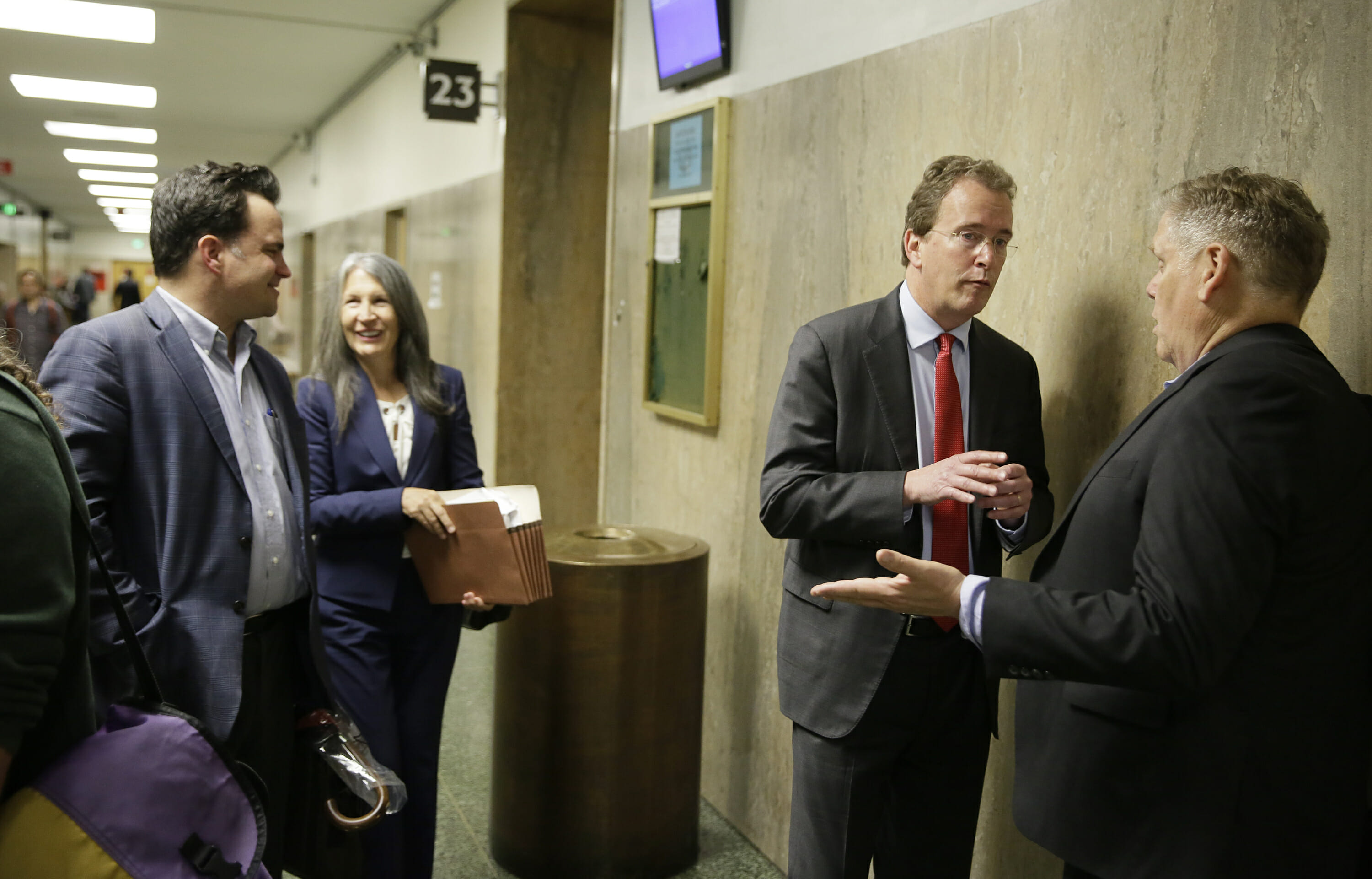
Legal experts: California reporter did not commit crime
SAN FRANCISCO (AP) — A battle between the press and police is playing out in politically liberal San Francisco after police raided a freelance reporter’s home and office seeking to uncover the source of a leaked police report into the unexpected death of the city’s former elected public defender.
Journalist Bryan Carmody did not commit a crime when he acquired and published a police report, said First Amendment expert David Snyder because a police report is “not a confidential, legally protected document” and its disclosure and publication is lawful.
Snyder said a journalist who participated in unlawfully acquiring information could be successfully prosecuted for a crime, but that was not the case here.
Carmody said he received the report from a source and did not pay for it, though legal experts argue doing so would not have been a crime. Still, San Francisco Police Chief William Scott said the journalist “crossed the line,” motivated by profit or animosity toward the late public defender, Jeff Adachi.
An autopsy found Adachi died Feb. 22 of a mixture of cocaine and alcohol, compromising an already bad heart.
Attorney Duffy Carolan, who represents several media organizations siding with Carmody, agrees that the public has constitutional rights to public records.
“The impact of trying to criminalize disclosure of public records, whether or not it violated internal policy or practice, will have a profound effect on public employees’ willingness to disclose public records,” she said. “It would have a chilling effect.”
San Francisco Sgt. Michael Andraychak said Wednesday that the report was not a public record and that state law protects crime reports when “disclosure would endanger the successful completion of the investigation or a related investigation.”
Media experts counter that although the law allows police to keep reports secret, nothing in the law stops them from releasing the information. They note police did not raid the office of San Francisco Chronicle reporter who obtained the same information independently of Carmody. The newspaper has said it did not pay for the report.
Police used a sledgehammer to try to get into Carmody’s home and handcuffed him for hours as they searched and subsequently removed dozens of cameras, cellphones, computers and other equipment.
“We believe that that contact, and that interaction went across the line,” the police chief said Tuesday in his first remarks since the May 10 raids. The department said the same day at a court hearing that Carmody’s property would be returned while the legal wrangling proceeds.
Reporters and other First Amendment organizations want a judge to revoke search warrants that authorized the raids and to unseal the materials submitted in support of them. Because the warrants are under seal, it’s not known what information police provided to support the search, or whether they disclosed that Carmody is a journalist.
The U.S. Supreme Court has ruled that journalists are free to report on newsworthy information contained in stolen documents or illegally intercepted telephone communications obtained from a third party who violated the law, said Carolan.
The justices may have ruled differently had the journalists encouraged or aided in the unlawful interception of the call, she said. But that is not the same as a reporter encouraging a public official or public employee to provide a public record.
“That is what reporters do every day,” Carolan said.
California’s shield law specifically protects journalists from search warrants. The Associated Press is among dozens of news organizations siding with Carmody and seeking to submit a friend-of-the-court brief.
Snyder, of the First Amendment Coalition, said the chief’s comments seemed to suggest a police employee may have accessed an unauthorized system to obtain confidential information, which the report is not.
“Would an offer by the journalist to pay the source to break the law be enough? Maybe. It would depend on the circumstances,” he said.
“I don’t think it matters what Carmody’s motivations were. The question is: Was his conduct protected by the First Amendment? And all the facts I’ve seen thus far show it was,” he said.
Scott has not provided details of the leak investigation other than to say that Carmody was an active participant in acquiring a police record, which the reporter then sold to three television news outlets as part of a news package that included information obtained from interviews and video footage from the scene of Adachi’s death.
Carmody has not responded to requests for comment, although he posted on Twitter on Wednesday the hashtag #journalismisnotacrime. A GoFundMe campaign has raised more than $16,000 for him.
The Western Journal has not reviewed this Associated Press story prior to publication. Therefore, it may contain editorial bias or may in some other way not meet our normal editorial standards. It is provided to our readers as a service from The Western Journal.
Truth and Accuracy
We are committed to truth and accuracy in all of our journalism. Read our editorial standards.
Advertise with The Western Journal and reach millions of highly engaged readers, while supporting our work. Advertise Today.












